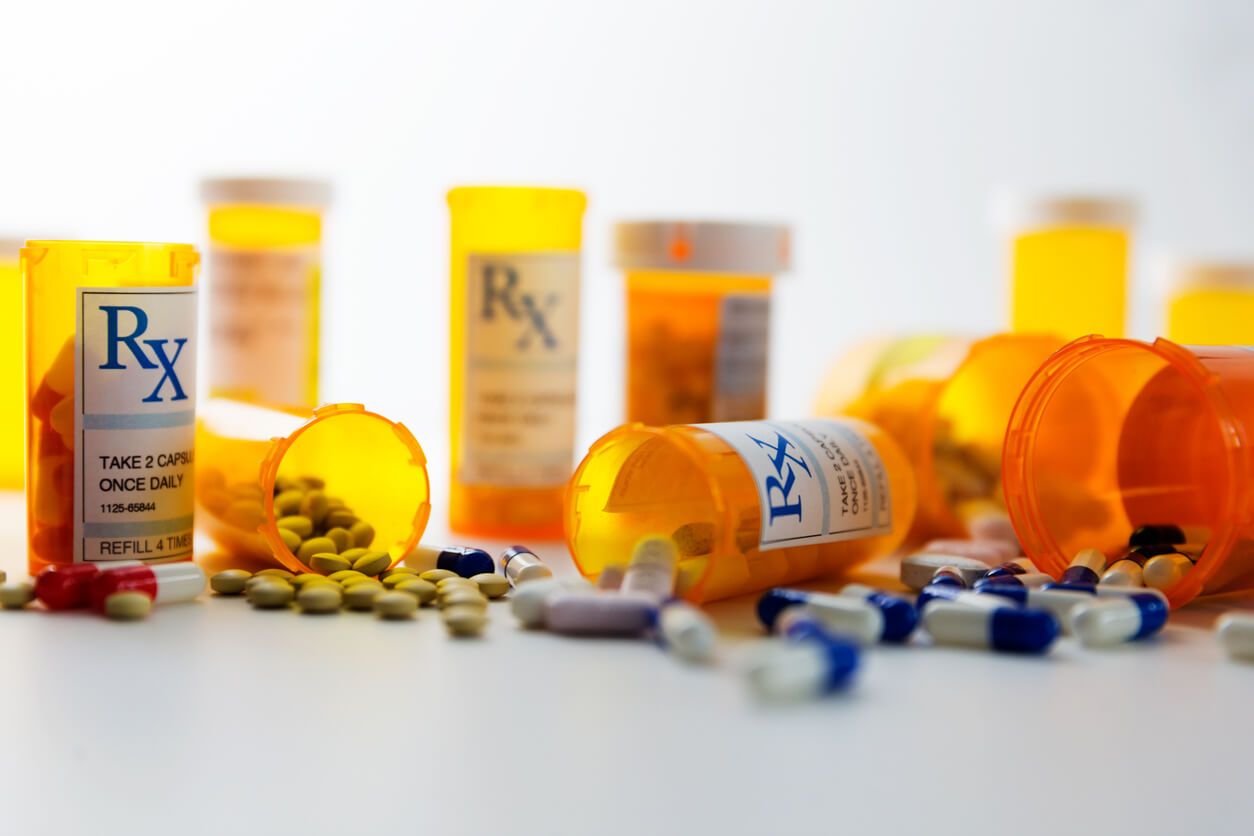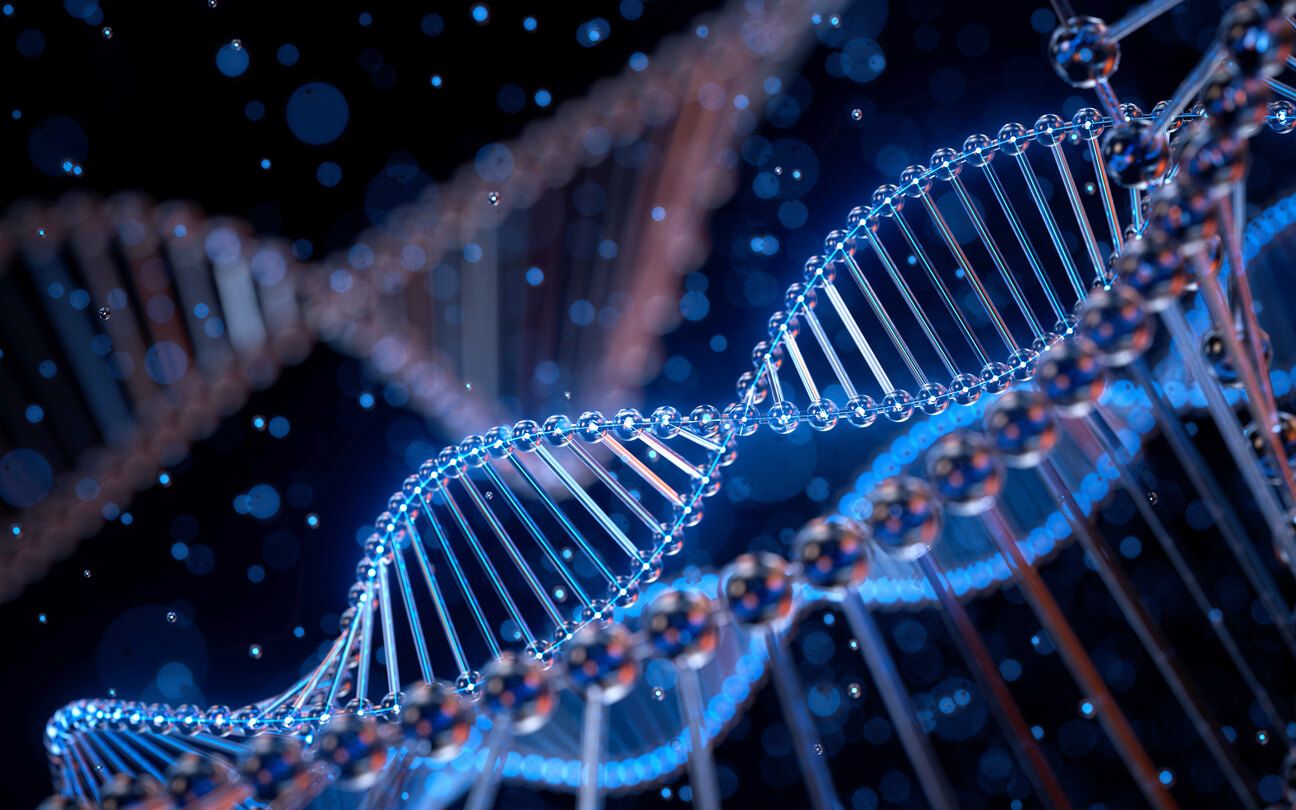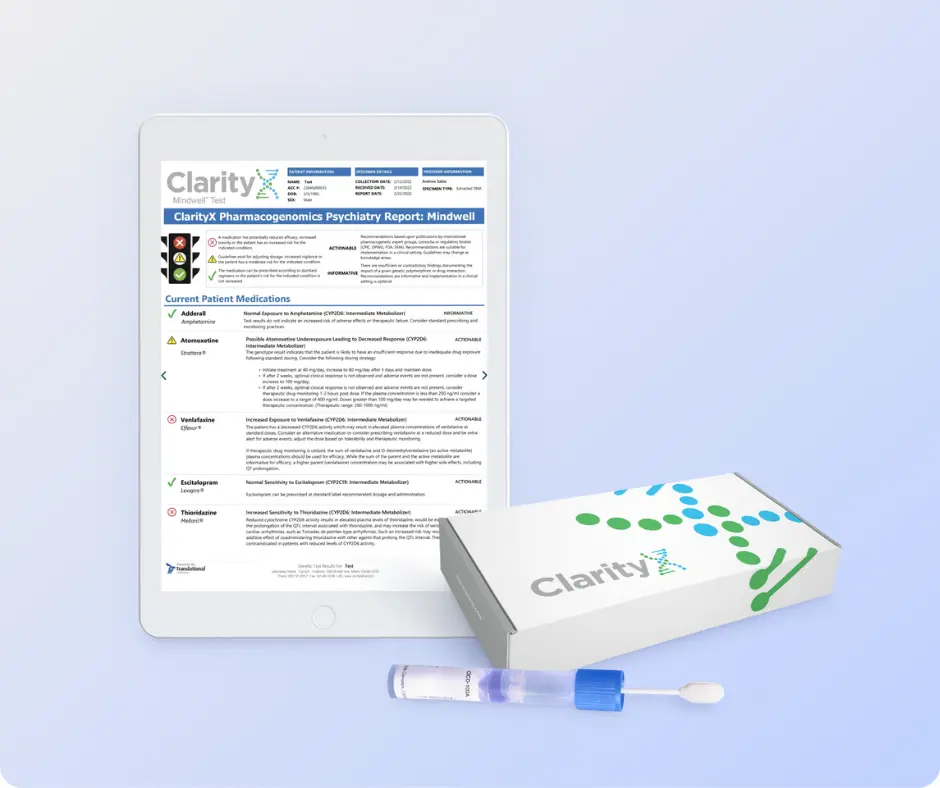Many people use antidepressants to treat mental health conditions. However, what happens if your antidepressants don’t work? Here’s a closer look at signs of ineffective antidepressants and how DNA testing can help.
In the United States alone, over 37 million Americans take antidepressants. Used to treat a variety of mental health conditions, from depression and anxiety to panic and obsessive-compulsive disorder, antidepressants are considered a vital part of many treatments. Unfortunately, nearly ⅔ of people with depression discover that their antidepressants don’t work.
If you’re wondering what to do when antidepressants don’t work, you’re not alone. Discovering that your treatment is ineffective is not just frustrating — it’s also detrimental to your health. The longer you go without the proper treatment, the worse your depression or mood disorder will get. Fortunately, there’s a solution: genetic testing.
By examining your genes and their response to certain medications, doctors can let you know which medications will and won’t work with your body. Here’s a more in-depth look at the nature of antidepressants and how genetic testing can help improve your treatment plan.
What Are Antidepressants?
Dealing with depression or a similar mood disorder isn’t easy. When left untreated, depression can quickly escalate and interfere with every aspect of life, from your social relationships and career prospects to your personal interests and ambitions.
To help treat depressive disorders, many doctors prescribe antidepressants. These drugs work by physically altering parts of your brain to balance neurotransmitters or chemicals that affect your mood and emotions. The main neurotransmitters they alter include:
- Dopamine: Influences motivation and pleasure
- Norepinephrine: Affects alertness and motor abilities
- Serotonin: Regulates mood, behavior, and memory
Despite what the name may lead you to believe, antidepressants are actually used to treat a wide range of conditions other than depression.
What Are Antidepressants Used For?
The most well-known use for antidepressants is treating depression, a mood disorder that causes a lack of interest in hobbies and general hopelessness. Antidepressants are also used to treat the following:
- Anxiety disorder: This condition is characterized by chronic feelings of unease, worry, and fear.
- Social phobia: Also known as social anxiety, this condition can be identified by debilitating anxiety during social situations.
- Panic disorder: This condition causes regular feelings of anxiety, stress, and panic at random intervals.
- Obsessive-compulsive disorder (OCD): People with OCD experience obsessive thoughts and compulsive behaviors.
- Post-traumatic stress disorder (PTSD): PTSD is similar to anxiety — however, it’s usually caused by a previous traumatic event.
When it comes to antidepressants, there’s no universal solution — based on factors like age, symptoms, and medical history, your doctor will prescribe a certain type and brand.
Types of Antidepressants
There are five different classes of antidepressants, each of which has its own unique mechanisms to help treat mood disorders. These classes include:
- Selective serotonin reuptake inhibitors (SSRIs): Also known as reuptake inhibitors, these drugs prevent the reuptake (or absorption) of serotonin. Brand names include Prozac, Zoloft, and Celexa).
- Serotonin and norepinephrine reuptake inhibitors (SNRIs): Similar to SSRIs, these drugs inhibit the absorption of both serotonin and norepinephrine. Brand names include Cymbalta, Effexor, and Fetzima.
- Tricyclic antidepressants (TCAs): As the name suggests, this class of drugs prevents the reuptake of three different neurotransmitters: serotonin, norepinephrine, and acetylcholine. Examples include Anafranil, Asendine, and Elavil.
- Monoamine oxidase inhibitors (MAOIs): These drugs work by restricting the function of an enzyme called monoamine, which in turn makes more neurotransmitters available. Examples include Emsam and Nardil.
- Atypical antidepressants: This category refers to any antidepressant that doesn’t fit into any of the above classes. Each one affects serotonin, norepinephrine, and dopamine in different ways. Examples include Oleptro, Symbax, and Wellbutrin.
No matter which class or brand of antidepressants your doctor prescribes, you may experience some side effects as the drug enters your system.
Side Effects of Antidepressants
When using antidepressants, it’s normal to undergo some adverse reactions. These may include:
- Dizziness and nausea
- Dry mouth and vomiting
- Fatigue and insomnia
- Blurry vision and headaches
- Weight gain and constipation
Once your body gets used to the drug, side effects should lessen or go away entirely. However, in some cases, side effects may grow and become debilitating, which defeats the purpose of treatment. In other cases, the drug may simply fail to alleviate any depression symptoms.
Signs Your Antidepressant Isn't Working
Antidepressants have proven to help relieve depression symptoms in about 50% of cases. Others, however, report not experiencing any changes once starting treatment. Here are some signs that your antidepressants don’t work.
Your Mood Doesn't Improve on Antidepressants
The simplest way to tell that your antidepressant isn’t working is by evaluating your mood. After about three months, you should definitely notice a change in your overall mood and emotions. If you sense that nothing has changed, that means that your medication is either ineffective or was prescribed at too low a dose.
You Feel Immediate, Temporary Relief on Antidepressants
The majority of depression medications take anywhere between two and twelve weeks to work. If you feel immediate relief, you’re most likely experiencing the “placebo effect,” which means the treatment only feels like its working because you believe in it. In some cases, the placebo effect will wear off and the actual treatment will be effective — in others, the treatment will just not work.
You Have More Physical Energy But Still Feel Depressed Antidepressants
Sometimes, antidepressant medications only work partially. One of the most common signs that your medication is only somewhat effective is if you experience an increase in physical energy, but still, feel sad. Not only does indicate that your antidepressant isn’t working properly, but this combination can increase the risk of suicidal thoughts.
You Experience Lots of Side Effects on Antidepressants
As mentioned above, it’s normal to experience a few side effects as you start a new medication. However, if these side effects don’t disappear after a couple of weeks, or if they are extreme or debilitating, then that’s a sign that you need new medication. Your treatment should not feel worse than the condition you are attempting to treat.
You Develop A Tolerance To Antidepressants
It’s possible for an antidepressant to work initially, but gradually become ineffective over time. In these cases, the patient most likely developed a tolerance to the medication. If you notice that your antidepressants are no longer reducing your anxiety and sadness or improving your mood, then it may be time for a change. These situations can usually be resolved by simply increasing your dosage (as opposed to switching medication entirely).
You Have Serotonin Syndrome
Sometimes, antidepressants lead to a condition called serotonin syndrome (or an excess of serotonin in the body). This usually happens when the antidepressant clashes with another medication or your diet, and it generally begins within days or weeks of starting your treatment. Symptoms include:
- Headache
- Confusion
- Restlessness
- Dizziness
- Muscle tension
If you experience serotonin syndrome, switching your medication can help eliminate some of the unpleasant side effects that accompany the condition.
You Don't Feel Like Yourself on Antidepressants
Sometimes, people on antidepressants notice improvements but are still unsatisfied with the results. For instance, you might realize that your mood is better, but you still don’t entirely feel like yourself. Similarly, you may feel happy at times but question your character and personality and wonder if that happiness is authentic. You don’t necessarily need to provide an exact reason for why you don’t feel like yourself — being unhappy with your medication for any reason is enough to justify a change.
Your Depression Gets Worse on Antidepressants
Antidepressants are supposed to help relieve depressive symptoms, not increase them. Unfortunately, for a small percentage of people, these medications can actually encourage depression and suicidal thoughts. If you realize that your depression is getting worse, it’s time to contact your doctor and talk about changing your medication.
What To Do When Antidepressants Don't Work
There are plenty of signs to suggest whether or not your depression medication is working properly. No matter which symptoms you encounter, if you discover that your antidepressants are ineffective it’s important to do something about it. Finding a treatment that works is instrumental in overcoming your mental health condition and improving your overall life.
Step One: Identify The Cause
The first thing you should do when you realize your treatment is ineffective is to talk to your doctor. In some cases, the problem isn’t actually your medication — it’s a misdiagnosis or improper use of treatment. Your doctor will generally do the following:
- Check Your Diagnosis: It’s possible that your medication isn’t working because you were misdiagnosed with depression or another mood disorder. Thus, your doctor will ask about your symptoms and double-check that your initial diagnosis was correct.
- Check Your Medication Use: One reason why your medication may not be working properly is that you haven’t been using it correctly. Missing doses or taking the wrong dosage amounts can render the medication ineffective.
- Look For Other Causes: In some cases, depression may be caused by other medical issues (such as thyroid problems). Treating the medical issue that’s causing your depression will eliminate the need for antidepressants.
If your doctor discovers that your diagnosis was correct, that you’re taking your medication appropriately, and that you have no other medical issues that could cause depression, then they will move on to finding a new treatment for you.
Step Two: Find A New Treatment
Once your doctor officially deduces that your antidepressants don’t work, they will most likely examine alternative treatment options. This process may include:
- Adjusting your dosage
- Switching your medication
- Adding a medication
If your antidepressant shows some signs of working, the problem may be fixed by simply adjusting your dosage. However, if there are no indications that the medication is effective, you may need to switch your medication entirely. In some cases, your doctor will stick to the same class of antidepressants. For instance, if Zoloft’s not working, they may switch to Prozac — if Prozac’s not working, they may switch to Zoloft. In other cases, they might switch to a new class entirely.
Another method the doctor may try is combination therapy or the combination of different drugs. This can help provide a more comprehensive treatment that targets more neurotransmitters and effectively reduces your depression symptoms. For example, if you notice that your Wellbutrin stopped working, the doctor may add another drug to work in conjunction with it.
At the end of the day, finding a new treatment is essentially a game of trial and error. It involves your doctor looking through different classes of antidepressants and experimenting with different combinations to try and find one that works for you. Not only is this time-consuming, but it can also cause a series of painful, frustrating side effects. Fortunately, there’s a solution that helps you avoid this taxing process while still getting the treatment you need: genetic testing for antidepressants.
What Is Genetic Testing For Antidepressants?
Discovering that your antidepressants don’t work is incredibly frustrating. In addition to not having the treatment you need, you now have to go through the exhausting experimentation game just to find a treatment that works for you. Genetic testing, or pharmacogenetics, eliminates the necessity of “trial and error” by giving you vital information about your DNA and response to medications.
So, how does genetic testing work? Simple — it evaluates your DNA to find variations that might affect your ability to metabolize medications. The majority of clinically used drugs are broken down by an enzyme family known as cytochrome P450. By evaluating the gene sequences that are responsible for producing these enzymes, genetic testing can identify variations that negatively affect your ability to metabolize drugs. Some information that genetic testing provides includes:
- Whether a drug will be ineffective: If your enzymes work too quickly, the drug will be broken down before it has the chance to function.
- Whether a drug will cause adverse effects: If your enzymes work too slowly, the drug will be left in your system for longer than advised — this in turn causes negative side effects.
- Whether a drug requires a certain dosage: By testing your tolerance to certain drugs, genetic testing can tell you whether a medication needs an above or below-average dosage.
Through a simple genetic test, you can learn whether you need to boost your dosage, lower your dosage or switch to a new medication entirely.
Do I Need Genetic Testing For Antidepressants?
There’s no harm in getting a genetic test done to learn more about your body and its response to different drugs. However, some people may benefit from a DNA test more than others. You should especially consider having a test done if the following applies to you:
- Your current medication isn’t working: The most obvious reason for genetic testing is being on an ineffective or painful medication. By identifying your enzyme’s metabolism rates, genetic testing can help you find a superior treatment.
- You’re experiencing depression symptoms: If you haven’t officially been diagnosed but suspect you have depression (or a similar mood disorder), then you should consider getting a genetic test done. This can help you avoid the “trial and error” process altogether once you seek treatment.
- You’ve had adverse reactions before: If you have a history of experiencing adverse reactions to medications, then you likely have a genetic variation that affects your ability to break down certain drugs. Through DNA testing, you can pinpoint those drugs and avoid them entirely.
- You have a family history of adverse effects: If you’ve never experienced adverse effects of medication, but you have family members that have, then getting genetic testing done is a good idea. Because genes are inherited, it’s likely that you may have the same variations as your family members.
- You have an underlying medical condition: If you have an underlying medical condition (in addition to your depression or mood disorder), then it’s important that your treatment does not interfere with any other medications you may be taking. Genetic testing can help you find a treatment that’s both safe and effective.
Taking the step to get a DNA test done can go a long way in helping you find the best treatment for your needs.
Antidepressants Not Working? Get A Genetic Test Today!
Antidepressants should make you feel better, not worse. Whether you’re experiencing debilitating side effects or your antidepressants don’t work at all, genetic testing can help you find a better treatment for your needs. At ClarityX, we offer a simple method of DNA testing through saliva collection.
Through our Mindwell, we can examine your DNA and predict your reaction to several of the most commonly used antidepressants. Take control of your health by getting a DNA test today!





